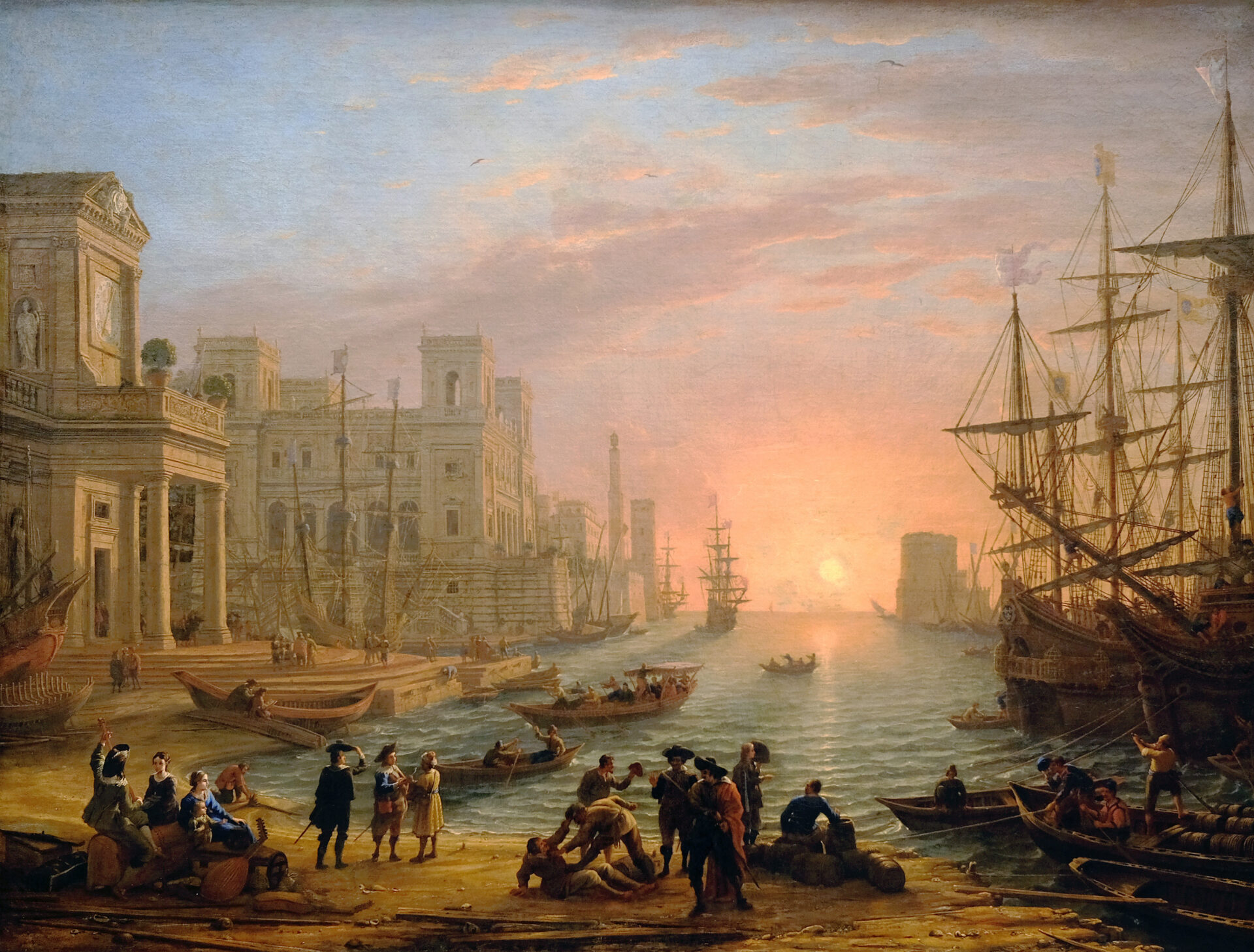Divine-right monarchy was not peculiarly French, of course, nor was the mercantilism practiced by the France of Louis XIV. But like divine-right rule, mercantilism flourished most characteristically under the Sun King. Mercantilism was central to the early modern effort to construct strong, efficient political units.
The mercantilists aimed to make their nation as self-sustaining as possible, as independent as possible of the need to import goods from other nations, which were its rivals and potential enemies. The mercantilists held that production within a nation should provide all the necessities of life for a hard-working population and also provide the power needed to fight and win wars.
They believed that these goals required planning and control from above. They wished to sweep away such medieval remnants as the manor and the guild, which. they felt, reduced the energies and abilities needed in an expanding economy. But they did not believe, as free-trade economists would later argue, that people should be free to do whatever they thought would enrich themselves. Instead, the mercantilists would channel the national economic effort by protective tariffs, by government subsidies, by grants of monopolies, by industries run directly by the government, and by scientific and applied research.
The mercantilists viewed overseas possessions as a particularly important part of France, which should he run from the homeland by a strong government. Many foodstuffs and raw materials were more easily available overseas than in Europe. Colonies therefore should be encouraged to provide necessities, so that the mother country need not import them from competitors. In return, the mother country would supply industrial goods to the colonies and have a monopoly over colonial trade. This mercantilistic approach to colonies was followed not only by France and Spain but by the less absolutist governments of England and Holland.
The great French practitioner of mercantilism was Colbert, who had served his apprenticeship under Mazarin and advanced rapidly to become controller general early in the personal reign of Louis. He never quite attained the supremacy reached by Richelieu and Mazarin; he was the collaborator, never the master, of Louis XIV, since other great ministers, especially Louvois for military affairs, stood in the way of his supremacy. Yet Colbert was influential in all matters affecting the French economy, most interested in foreign trade and in the colonies and therefore in the merchant marine and in the navy. His hand was in everything: in invention, in technological education, in designing and building ships, in attracting foreign experts to settle in France.
Among the industries Colbert fostered were the processing of sugar, chocolate, and tobacco from the colonies; the production of military goods by iron foundries and textile mills; and the manufacture of the luxuries for which the French soon became famous. The fifteenth- century Gohelins tapestry enterprise in Paris was taken over by the state and its output expanded to include elegant furniture, for which the king was a major customer. Glassblowers and lace makers were lured away from Venice, despite strenuous efforts by the Venetian republic to keep their valuable techniques secret. In a blow against French competitors, Colbert imposed heavy tariffs on some Dutch and English products. To promote trade with the colonies and also with the Baltic and the Mediterranean, he financed trading companies, of which only the French India Company eventually succeeded.
At home, Colbert encouraged reforestation, so that iron foundries could have abundant supplies of charcoal (then essential for smelting); he also promoted the planting of mulberry trees to nourish the silkworms vital to textile output. He even attempted—vainly, as it turned out—to control quality by ordering that defective goods he prominently exhibited in public, along with the name of the offending producer, and that the culprit he exhibited for a third offense.
He also endeavored, again for the most part in vain, to break down the harriers to internal free trade, such as provincial and municipal tariffs or local restrictions on the shipment of grain to other parts of France. He did, however, successfully sponsor the construction of important roads and canals–the Canal du Midi, linking the Atlantic port of Bordeaux with the Mediterranean port of Narbonne, reduced transport charges between the two seas by three-fourths and was described as the greatest engineering feat since Roman days.
Whether the great prosperity France achieved in the first thirty years of Louis’s reign came about because of, or despite, the mercantilist policies of Colbert is difficult to decide. Under the mercantilist regime France did attain undoubted leadership in European industry and commerce.
That lead was lost in part because the last two wars of Louis XIV were ruinously expensive, in part because in the eighteenth century France’s rival, England, introduced new methods of power machinery and concentrated on large-scale production of inexpensive goods, while France clung to the policies set by Colbert, favoring relatively small-scale production of luxuries and other consumer goods.
But the difference between French and English industry was also a difference in the focus of national energies; while for the time, England focused inwards, France, like Spain before it, spent an exceptional proportion of its national product in an unfruitful effort to dominate through the force of arms both Europe and the known overseas world.

